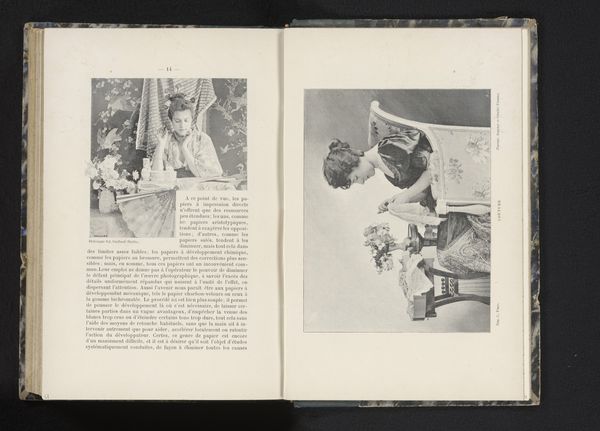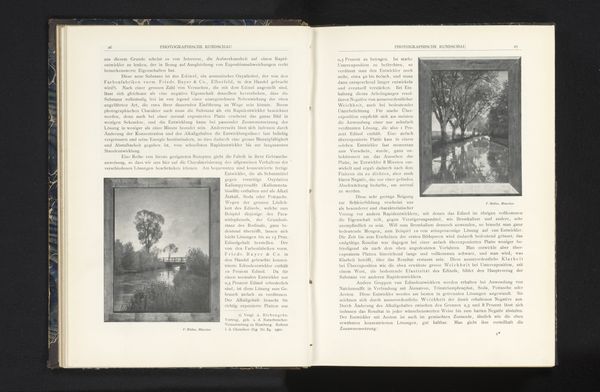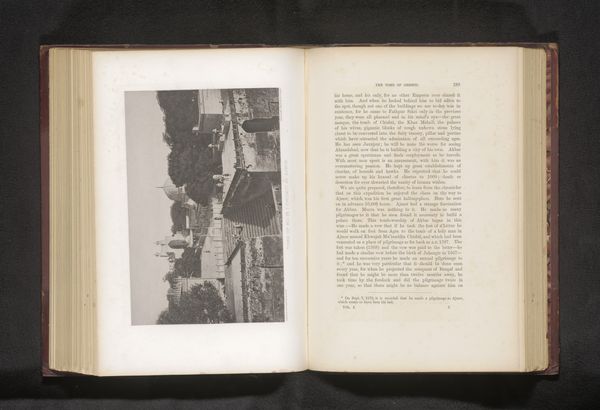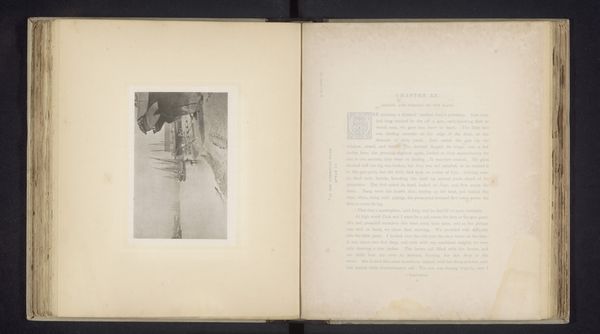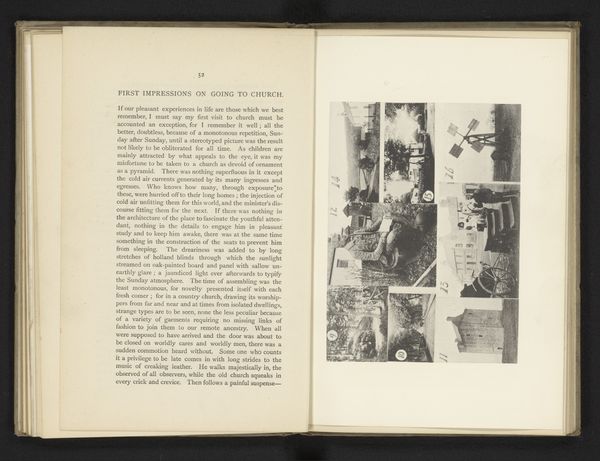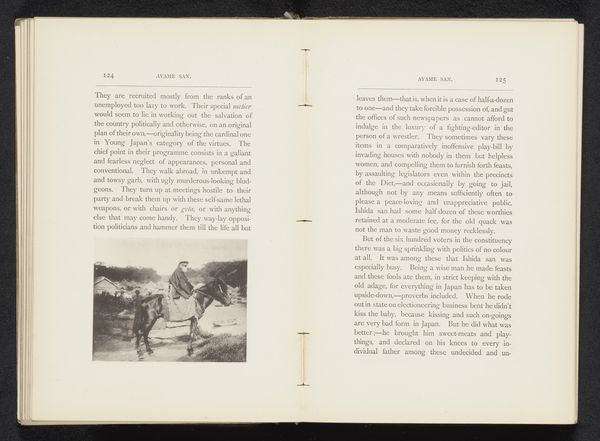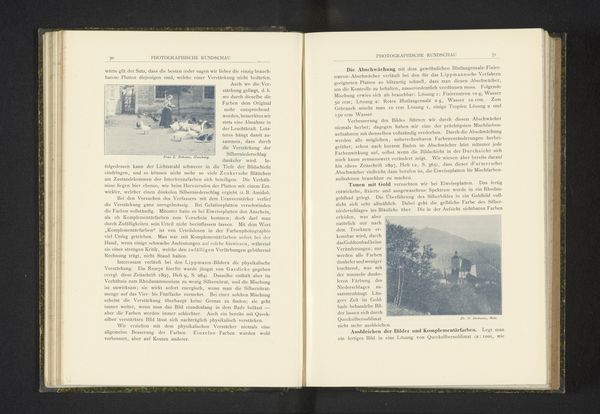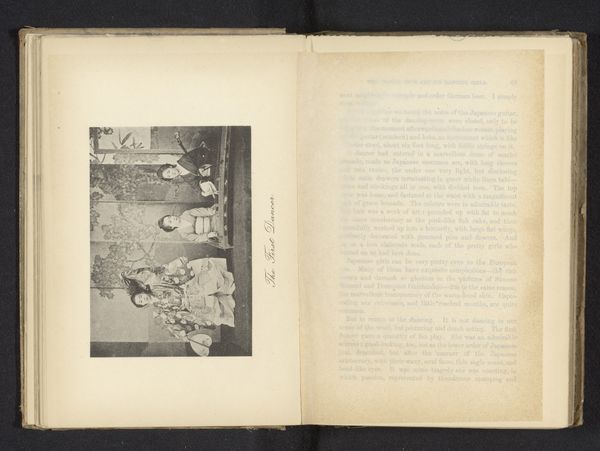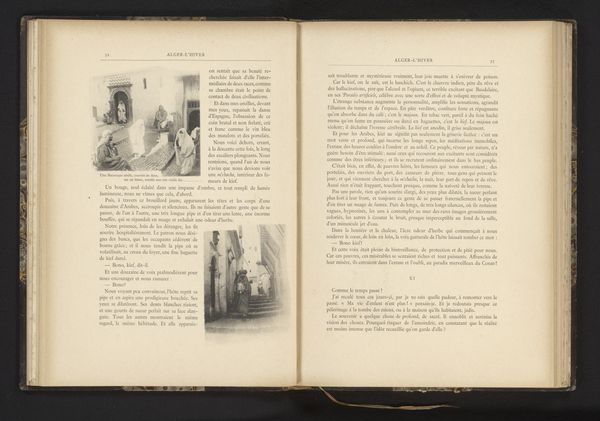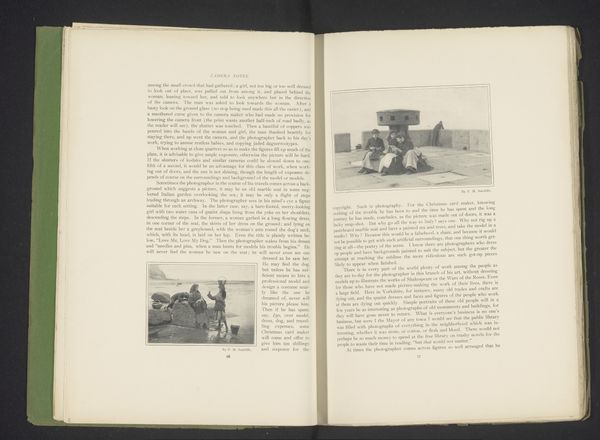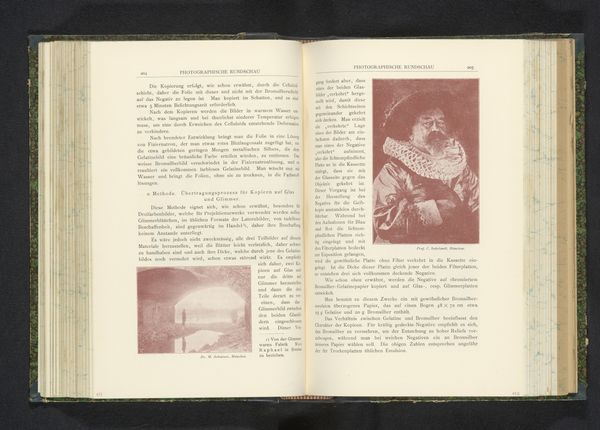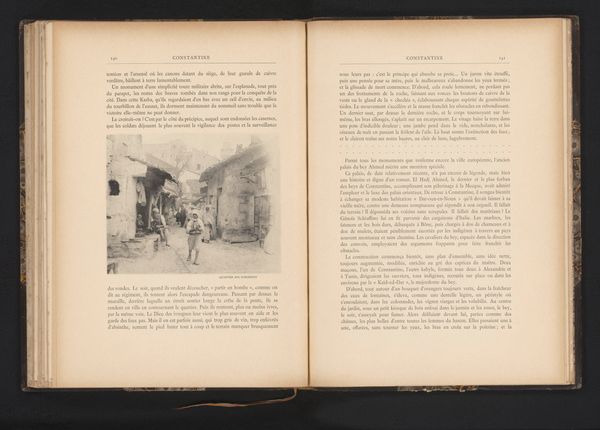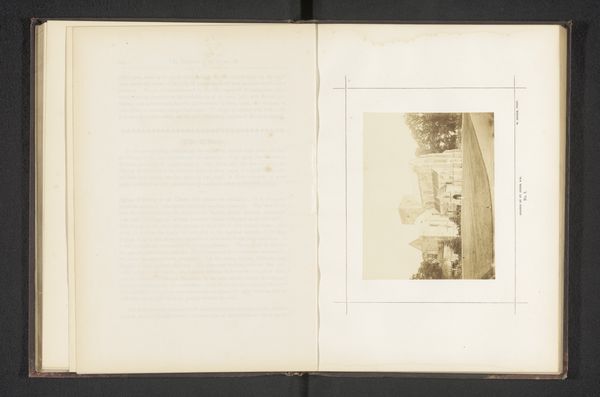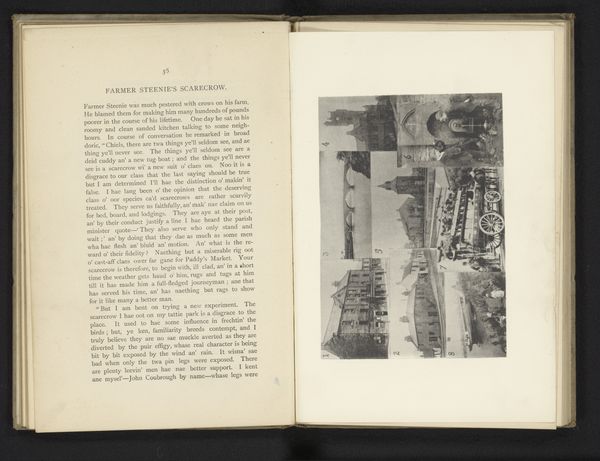
print, photography
# print
#
photography
Dimensions: height 81 mm, width 60 mm
Copyright: Rijks Museum: Open Domain
Curator: So, looking at this print photograph, "Portret van een onbekende naakte vrouw op een bed" by Frederick Colburn Clarke from before 1900... what stands out to you initially? Editor: Well, it is a striking image for its time! The photograph itself has a very textural quality to it, given it’s a print, which gives the intimate portrait a very personal feel. How would you interpret its overall impact given the time it was made? Curator: Considering its production as a photograph reproduced within a print publication, the interplay between artistic vision and technological constraints is interesting. How does the printing process, the choices in paper stock and ink, affect how we perceive the subject? Editor: That's an interesting way to think about it. The graininess almost adds another layer of vulnerability to the subject...almost making her seem more 'real'. But wouldn’t the artistic intentions of Clarke and decisions to reproduce it have come from a consumer interest in the nude female body at that time? Curator: Exactly! This reproductive method made art accessible beyond traditional patrons of the upper class and asks us to think of this woman as commodity, something to be consumed by the masses. So what do you make of it now, knowing a bit more of its production? Editor: I see what you mean. It's not just about the image itself but how it was made, who had access to it, and the labor involved in bringing it to a wider audience. The image, as presented to the public, challenges my initial understanding of art of that era as well. Thank you! Curator: Agreed. It prompts us to question what's 'high' and 'low' art, especially when considering the social and economic contexts of its creation and consumption.
Comments
No comments
Be the first to comment and join the conversation on the ultimate creative platform.
